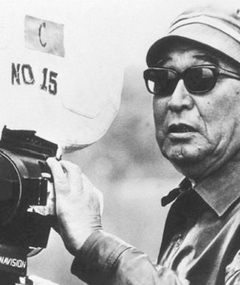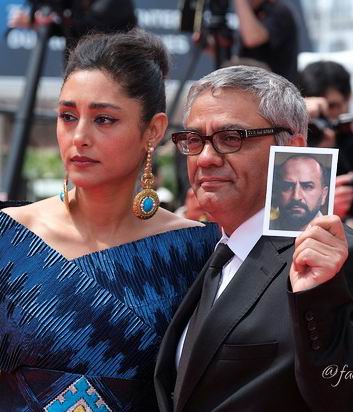|
|
| Welcome to Online Film Home! |
|---|
|
|
|

Kurosawa, Akira |
Date of birth
23 March 1910, Omori, Tokyo, Japan
Date of death
6 September 1998, Setagaya, Tokyo, Japan
Akira Kurosawa (March 23, 1910 - September 6, 1998)
The son of an army officer, Kurosawa studied art before gravitating to film as a means of supporting himself.
He served seven years as an assistant to director Kajiro Yamamoto before he began his own directorial career with Sanshiro Sugata (1943), a film about the 19th century struggle for supremacy between adherents of judo and jujitsu that so impressed the military government, he was prevailed upon to make a sequel (Sanshiro Sugata Part Two).
Following the end of World War II, Kurosawa’s career gathered speed with a series of films that cut across all genres, from crime thrillers to period dramas.
Among the latter, his Rashomon (1951) became the first postwar Japanese film to find wide favor with Western audiences.
It was Kurosawa’s The Seven Samurai (1954), however, that made the largest impact of any of his movies outside of Japan.
“Movie directors, or should I say people who create things, are very greedy and they can never be satisfied...that's why they can keep on working. I've been able to work for so long because I think next time, I'll make something good.”
Although heavily cut for its original release, this three-hour-plus medieval action drama, shot with painstaking attention to both dramatic and period detail, became one of the most popular Japanese films of all time in the West, and every subsequent Kurosawa film has been released in the U.S. in some form, even if many, most notably The Hidden Fortress (1958), were cut down in length.
In 1964, Rashomon was remade in a Western setting as The Outrage, while Yojimbo was remade by Sergio Leone as A Fistful of Dollars.
The Seven Samurai (1954) fared best of all, serving as the basis for John Sturges’ The Magnificent Seven (which had been the original title of Kurosawa’s movie) in 1960; the remake actually did better business in Japan than the original.
In 1985, an unfilmed screenplay of Kurosawa’s also served as the basis for Runaway Train, a popular action thriller.
Kurosawa’s movies subsequent to his period thriller Sanjuro (1962) abandoned the action format in favor of more esoteric and serious drama, including his epic-length medical melodrama Red Beard (1965).
In later years, despite ill health and problems getting financing for his more ambitious films, Kurosawa remained the most prominent of Japanese filmmakers until his death in 1998.
With his Westernized style, Kurosawa always found a wider audience and more financing opportunities in Europe and America than he did in his own country.
A sensitive romantic at heart, with a sentimental streak that occasionally rose forcefully to the surface of his movies, his work probably resembles that of John Ford more closely than it does any of his fellow Japanese directors. -- Allmovie
Selected filmography of
Kurosawa, Akira
1993
Madadayo | Not Yet (1993)
1991
Rhapsody in August | Hachigatsu no kyoshikyoku (1991)
1990
Dreams | 夢 | Yume | Akira Kurosawa's Dreams (1990)
1985
Ran | Chaos (1985)
1980
Kagemusha | Shadow Warrior | 影武者 (1980)
1974
Dersu Uzala | Дерсу Узала | デルス·ウザーラ (1974)
1970
Dodesukaden (Dodes'ka-den) | どですかでん (1970)
1965
Red Beard | 赤ひげ | Akahige (1965)
1963
High and Low - Tengoku to jigoku (1963)
1962
Sanjuro - Tsubaki Sanjûrô (1962)
1961
Yojimbo | 用心棒 | Yôjinbô (1961)
1960
The Bad Sleep Well - Warui yatsu hodo yoku nemuru (1960)
1958
The Hidden Fortress | 隠し砦の三悪人 | Kakushi-toride no san-akunin (1958)
1957
The Lower Depths | どん底 | Donzoko (1957)
1957
Throne of Blood - Kumonosu jo (1957)
1955
I Live in Fear | Ikimono no kiroku | 生きものの記録 (1955)
1954
Seven Samurai | Shichinin no samurai | 七人の侍 (1954)
1952
Ikiru | 生きる | Doomed (1952)
1951
The Idiot | 白痴 | Hakuchi (1951)
1950
Scandal - Shubun (1950)
1950
Rashomon | In the Woods (1950)
1949
Stray Dog | Nora inu (1949)
1948
Drunken Angel - Yoidore tenshi (1948)
1947
One Wonderful Sunday | Subarashiki nichiyobi (1947)
1946
No Regrets for My Youth | Waga seishun ni kuinashi (1946)
1945
The Men Who Tread On the Tiger's Tail | Tora no o wo fumu otokotachi (1945)
1943
Sanshiro Sugata | Judo Saga | 姿三四郎 (1943)
|
|
|
|

Cannes 2024 |
Choose an item to go there!
|
| |
|
|

